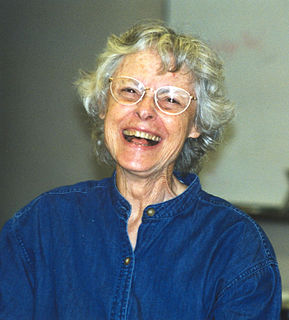A Quote by Liza Johnson
We all fall in love with the idea of a person, and then as time goes on we either accommodate ourselves to the real person or we don't.
Quote Topics
Related Quotes
I do not invent characters. There they are. That's who they are. That's their nature. They talk and they behave the way they want to behave. I don't have a character behaving one way, then a point comes in the play where the person has to either stay or leave. If I had it plotted that the person leaves, then the person leaves. If that's what the person wants to do. I let the person do what the person wants or has to do at the time of the event.
Buddha introduced the idea that young people should become sannyasins. Then it is something significant. When a young person goes beyond sex, when a young person goes beyond desires, when a young person goes beyond greed, ambition, the longing to be powerful, the ambition to be famous, then it is something tremendously meaningful, significant.
I've actually never been taken on a date in my whole life. I have never had a one-night stand. I'm a real relationship person - contrary to public perception. I'm either in one or I'm not. I get kind of emotionally involved very quickly, and I'm not going to spend time with someone unless I love them. But it's not hard for me to fall in love.
When you first time you fall in love, you think that is going to be your whole life project, loving someone. It burns your brain, you kind of become blind, the moment you see the person you're in love with you want to see that person again and again and again, kiss that person, hug that person. You turn blank to the rest of the world.
So how do you fall in love with life? The same way you fall in love with another person -- you adore everything about them! You fall in love with another person by seeing only love, hearing only love, speaking only love, and by feeling love with all your heart! And that is exactly how you use the ultimate power of love in love with life.
The old idea is that when tragedy strikes or when an obstacle blocks us, there are only two possibilities. We either become a smaller person or we become a bigger person. If it's a real life change you cannot come out the same. So therefore, you're either going to come out smaller or you're going to rise up and ultimately come out of it a bigger person.
There has certainly been a great deal of work addressing the relationship between naturalism and the first-person perspective. Quite a number of philosophers have suggested that there are features of the first-person perspective that naturalism just cannot accommodate, whether it be qualitative character, or consciousness, or simply the ability we have to think of ourselves in a distinctively first-person manner.

































